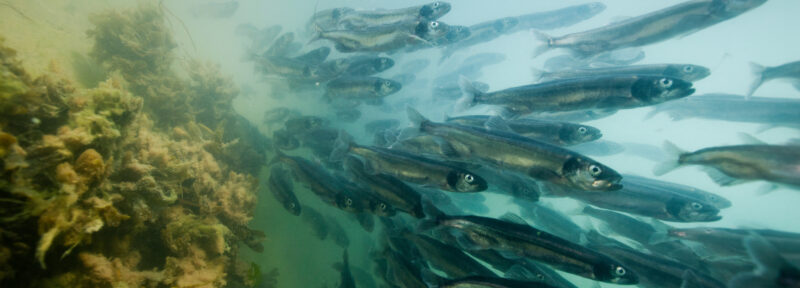Modernized Fisheries Act is a win for aquatic ecosystems, species, and the communities that depend on them
FOR IMMEDIATE RELEASE: June 20, 2019
K’jipuktuk [Halifax], Nova Scotia — A modernized Fisheries Act will soon receive Royal Assent, marking the first time since 1868 that the law has had an extensive overhaul. The Fisheries Act helps protect our aquatic ecosystems and species, and also sets out the framework for how fisheries are managed. However, the old legislation—first created just a year after Canada was founded—was outdated and had been weakened by previous governments. The updated version restores protection for fish habitats, while also making substantial improvements to the way fisheries are managed.
The restoration of fish habitat protection provisions reflects the concerns of conservation organizations, Indigenous communities, anglers and other industries, says Susanna Fuller, Senior Projects Manager for Oceans North. “In addition, the amended Act addresses both environmental and socio-economic concerns, with the legal protection of the independence of inshore fishing fleets in Atlantic Canada. These improvements will help us overcome challenges facing both fish populations and the coastal communities that depend on them.”
The Fisheries Act was broadly supported by the Senate, and the final Bill was the result of a comprehensive study by both the Parliamentary Committee on Fisheries and Oceans and the Senate Standing Committee on Fisheries and Oceans. Industry, environmental and conservation organizations as well as Indigenous communities were among the participants in both processes.
“With this modernized Fisheries Act our government is taking real action to improve the sustainability of our fish stocks, support the prosperity of coastal communities and protect our marine environment,” says Jonathan Wilkinson, Minister of Fisheries, Oceans and the Canadian Coast Guard. “This would not have been possible without the support and guidance from stakeholders across the country like Oceans North. This is a commitment that our government made during the last campaign, and today is a milestone in implementing this improved, modern framework to best manage Canada’s fisheries, and protect our oceans.”
“We are delighted to celebrate the passage of an amended Fisheries Act,” says Trevor Taylor, Vice-President of Conservation for Oceans North. “In particular, we are very pleased that the Act now reflects our recommendations to include modern principles of fisheries management, including the ecosystem approach, consideration of Indigenous knowledge and rights, and a requirement for rebuilding depleted fish populations.”
Several regulations now need to be developed under the Act, including those for habitat authorizations, rebuilding of fish stocks and preserving the independence of fishing fleets. There are also new factors that can and should be considered in the Act in relation to these regulatory processes. For example, while the Act includes the consideration of Indigenous knowledge and acknowledges the constitutional rights of Indigenous peoples, more work needs to be done to ensure that it meets the requirements of the United Nations Declaration on the Rights of Indigenous Peoples.
For more information:
Susanna Fuller
Senior Projects Manager
[email protected]
(902) 483-5033
Alex Tesar
Communications Specialist
[email protected]
(902) 292-2573




